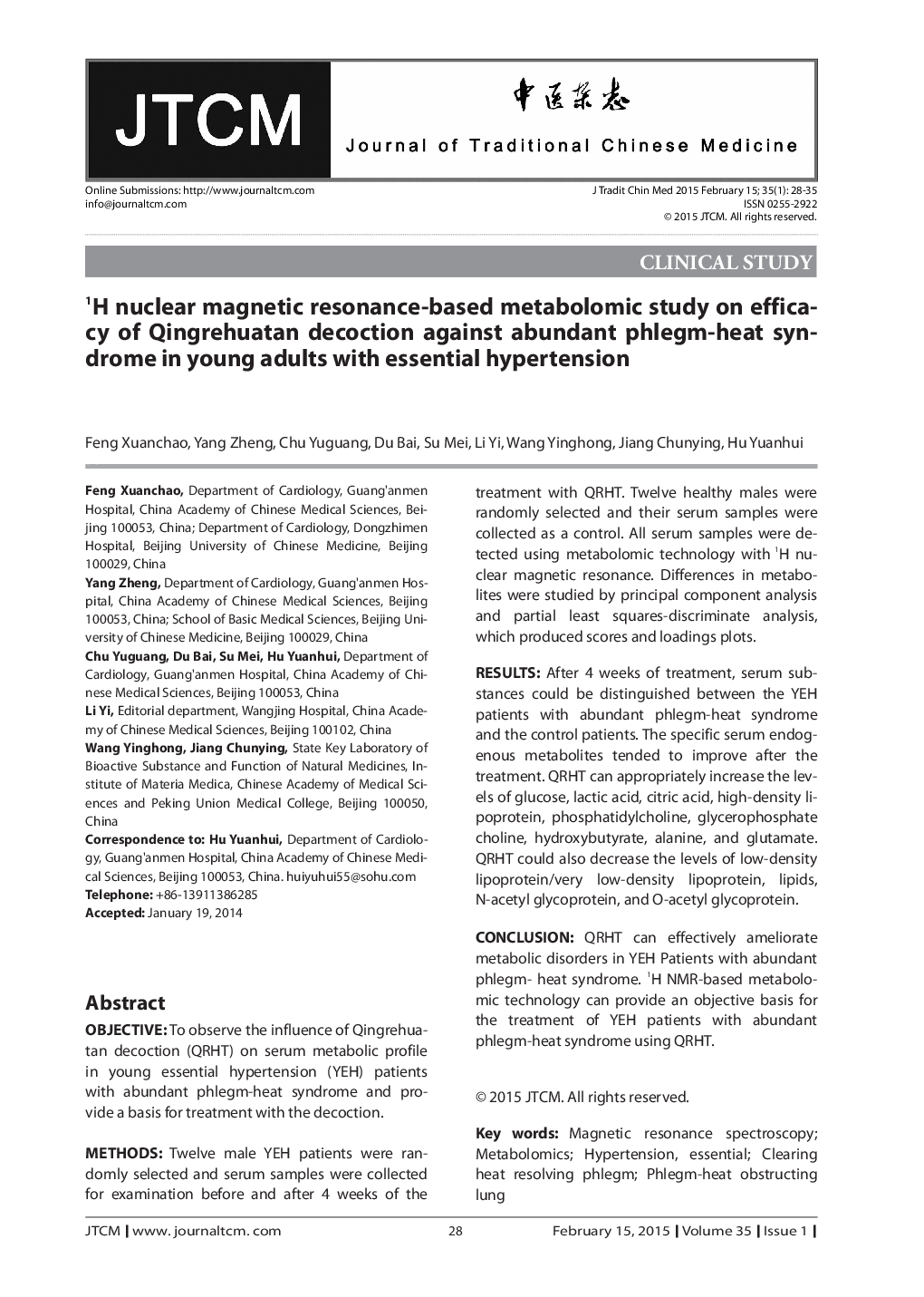| Article ID | Journal | Published Year | Pages | File Type |
|---|---|---|---|---|
| 4201365 | Journal of Traditional Chinese Medicine | 2015 | 8 Pages |
ObjectiveTo observe the influence of Qingrehuatan decoction (QRHT) on serum metabolic profile in young essential hypertension (YEH) patients with abundant phlegm-heat syndrome and provide a basis for treatment with the decoction.MethodsTwelve male YEH patients were randomly selected and serum samples were collected for examination before and after 4 weeks of the treatment with QRHT. Twelve healthy males were randomly selected and their serum samples were collected as a control. All serum samples were detected using metabolomic technology with 1H nuclear magnetic resonance. Differences in metabolites were studied by principal component analysis and partial least squares-discriminate analysis, which produced scores and loadings plots.ResultsAfter 4 weeks of treatment, serum substances could be distinguished between the YEH patients with abundant phlegm-heat syndrome and the control patients. The specific serum endogenous metabolites tended to improve after the treatment. QRHT can appropriately increase the levels of glucose, lactic acid, citric acid, high-density lipoprotein, phosphatidylcholine, glycerophosphate choline, hydroxybutyrate, alanine, and glutamate. QRHT could also decrease the levels of low-density lipoprotein/very low-density lipoprotein, lipids, N-acetyl glycoprotein, and O-acetyl glycoprotein.ConclusionQRHT can effectively ameliorate metabolic disorders in YEH Patients with abundant phlegm-heat syndrome. 1H NMR-based metabolomic technology can provide an objective basis for the treatment of YEH patients with abundant phlegm-heat syndrome using QRHT.
